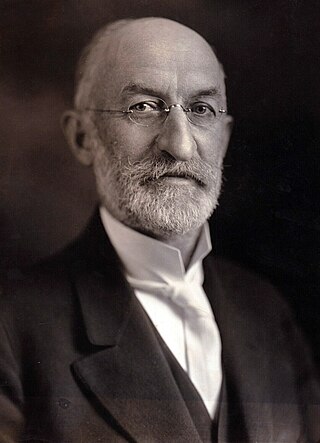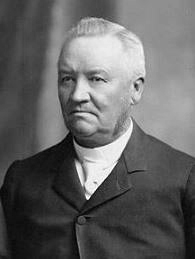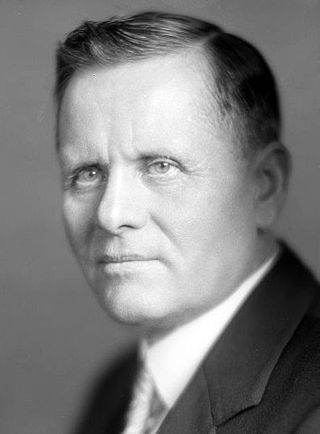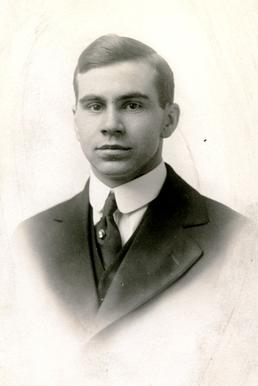Related Research Articles

Heber Jeddy Grant was an American religious leader who served as the seventh president of the Church of Jesus Christ of Latter-day Saints. Grant worked as a bookkeeper and a cashier, then was called to be an LDS apostle on October 16, 1882, at age 25. After the death of Joseph F. Smith in late 1918, Grant served as LDS Church president until his death.

David Oman McKay was an American religious leader and educator who served as the ninth president of the Church of Jesus Christ of Latter-day Saints from 1951 until his death in 1970. Ordained an apostle and member of the Quorum of the Twelve Apostles in 1906, McKay was an active general authority for nearly 64 years, longer than anyone else in LDS Church history.

Charles William Penrose was a member of the Quorum of the Twelve Apostles of the Church of Jesus Christ of Latter-day Saints from 1904 to 1911. Penrose was also a member of the First Presidency, serving as a counselor to church presidents Joseph F. Smith and Heber J. Grant from 1911 until his death.

Anthon Henrik Lund was a member of the Quorum of the Twelve Apostles and the First Presidency of the Church of Jesus Christ of Latter-day Saints and a prominent Utah leader.

Brigham Young Jr. served as president of the Quorum of the Twelve Apostles of the Church of Jesus Christ of Latter-day Saints from 1899 until his death. His tenure was interrupted for one week in 1901 when Joseph F. Smith was the president of the Quorum.

Herbert Brown Maw was an American politician and educator who was the eighth governor of Utah. He served as governor from 1941 to 1949. He was a Democrat and was a member of the Church of Jesus Christ of Latter-day Saints.

Don Byron Colton was an American lawyer and politician who served six consecutive terms as a U.S. Representative from Utah from 1921 to 1933.

Leonard John Nuttall Sr. was a private secretary for John Taylor and Wilford Woodruff, and was a member of the Council of Fifty who kept a detailed journal of the early history of the Church of Jesus Christ of Latter-day Saints.
George Richard Hill Jr. was an American educational administrator and was the seventh general superintendent of the Sunday School organization of the Church of Jesus Christ of Latter-day Saints from 1949 to 1966. Hill was a member of the general superintendency of the LDS Church Sunday School from 1934 to 1966.
David Lawrence McKay was the eighth general superintendent of the Sunday School of the Church of Jesus Christ of Latter-day Saints from 1966 to 1971. McKay was a member of the general superintendency of that organization from 1949 to 1971.
Albert Hamer Reiser was a prominent community leader in Utah and a missionary and leader of the Sunday School in the Church of Jesus Christ of Latter-day Saints.

Theodore Belden Lewis was an early leader in the Church of Jesus Christ of Latter-day Saints who was called and sustained to the Presidency of the Seventy, but never served in the office and was not set apart.
Louis Frederick Moench was the founding president of Weber Stake Academy and the father of education in Northern Utah, on the same level of importance as John R. Park and Karl G. Maeser to the development of education in Utah.

Harvey L. Taylor was an administrator over all schools other than Brigham Young University (BYU) within the Church Educational System of the Church of Jesus Christ of Latter-day Saints from 1964 until 1970. He was vice president of Brigham Young University (BYU) from 1957 until 1964, when he became acting Chancellor of the Unified School System.

Franklin Snyder Richards was the general counsel for the Church of Jesus Christ of Latter-day Saints in the late-19th and early-20th century. He was closely connected with the defense against charges of polygamy of many leading LDS Church figures.

Arias Guy Belnap was a Utah politician and businessman.
Martin Henderson Harris was a Mormon pioneer, LDS Church leader, early Utah horticulturalist, and early colonizer of Harrisville, Utah and Fort Lemhi, Idaho.
Nephi United States Centennial Jensen (1876–1955), was a member of the Utah House of Representatives, a county judge in Salt Lake City for many years, and was the first president of the Canadian Mission of the Church of Jesus Christ of Latter-day Saints.
Lynn S. Richards was a Utah lawyer, politician, and a leader in the Church of Jesus Christ of Latter-day Saints.
Thomas Jordan Stevens (1848-1900) was a member of the Utah State legislature.